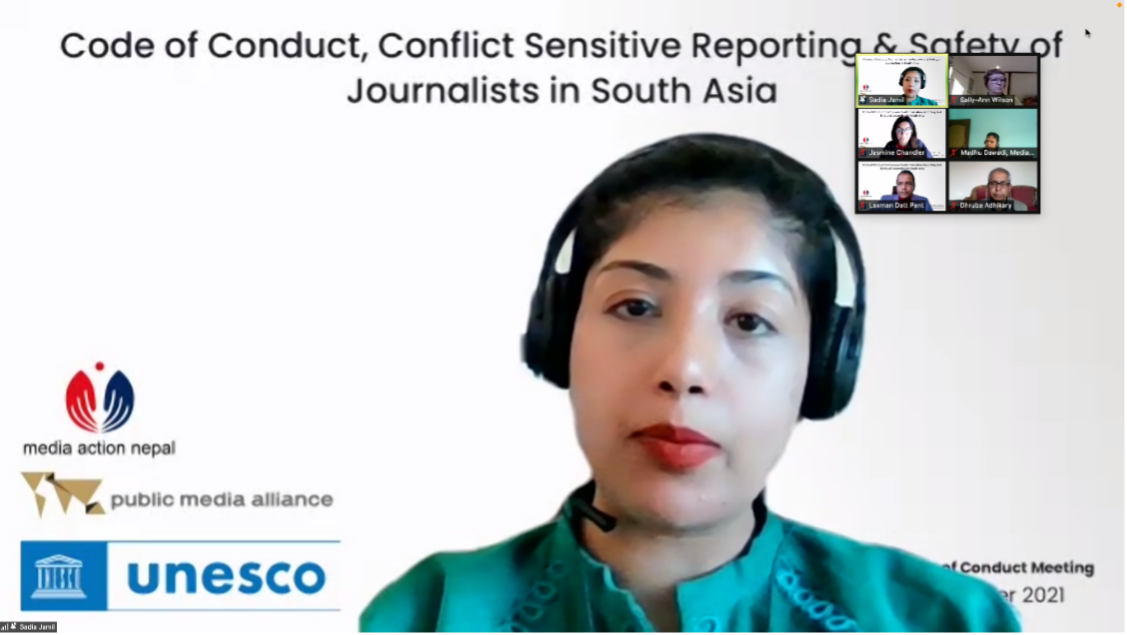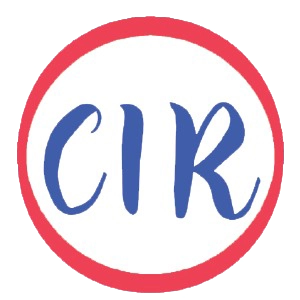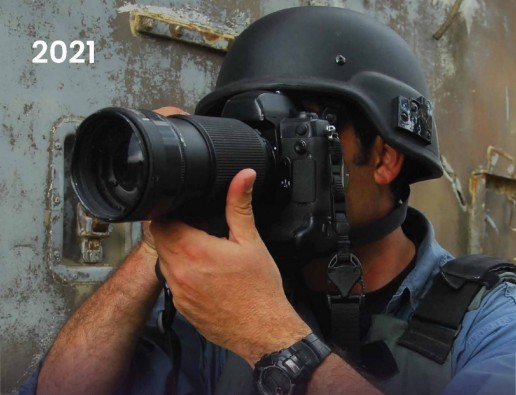After nearly two years of work, the Public Media Alliance launched a South Asia Code of Conduct aimed at strengthening the region’s capacity in the areas of conflict sensitive reporting, journalist safety, and self-regulation.
The newly-launched Code of Conduct on Improving Conflict Sensitive Reporting & Journalist Safety in South Asia was heralded as a “truly distinct” piece of work during the launch webinar. It was also described as an “absolutely necessary” document for retaining public trust in the media during times of widespread misinformation and fake news.
On 23 November, media stakeholders from Bangladesh, India, Nepal, and Sri Lanka gathered virtually for the launch of the code. It was part of a wider project organised by the Public Media Alliance with support from its local partner Media Action Nepal, the UNESCO New Delhi Office, and the International Programme for the Development of Communication (IPDC).
The Code of Conduct was produced following a mapping exercise and a three-day workshop with 30 media workers from the four target countries. During the workshop, the participants contributed their respective local knowledge and expertise to the code’s finalisation. The draft code was subsequently reviewed by other South Asian media stakeholders, including editors, press council representatives, and academics.
“This code of conduct is truly distinct because it is based on a multi-stakeholder approach,” Dr. Sadia Jamil, Country Representative, Asian Media Information & Communication Centre (UAE) and Workshop Facilitator, said during the launch. DOWNLOAD CODE OF CONDUCT

Workshop facilitator, Dr. Sadia Jamil, during the launch of the code of conduct
The final report will act as a strategy document, advising journalists and media workers across South Asia on how they can cover areas such as conflict, human rights, and gender in an informed, fair, and safe manner.
Jasmine Chandler, PMA’s Projects & Membership Manager, explained the project had been two years of work, consisting of developing it, conducting research, and ultimately delivering the project. She said too that the project was reworked as a virtual one instead of a physical one in Nepal due to COVID-19 restrictions.
“This is a really, really difficult time for journalists everywhere… There’s been a lot of pushbacks to what we all do as a profession and that also involves many of us taking great risks, particularly in some regions of the world where conflict and the attacks on journalists are increasing day by day – and really it is worldwide. We see it everywhere, particularly with online and physical threats and these can be so damaging and undermining to your work.”
– Sally-Ann Wilson, CEO of Public Media Alliance
The launch event featured an overview by the workshop facilitators, Laxman Datt Pant and Dr. Jamil, as well as a keynote speech by veteran Nepali journalist Dhruba Hari Adhikary. In his speech, Mr. Adhikary applauded the selection of South Asia as the project region, noting that the region is known for “vast ethnic, cultural and linguistic diversity”, while the media landscape is similarly diverse. He emphasised the essential role of media workers in disseminating fact-based journalism while still safeguarding themselves against growing threats.
“The ultimate objective of taking initiative to develop the present code of conduct is to assure audiences about the credibility of the media as an institution. This is absolutely necessary to prevent erosion of public trust we all have collectively enjoyed thus far.”
– Mr. Dhruba Hari Adhikary, Advisor of Media Action Nepal & Senior Journalist
Watch the video:
https://www.facebook.com/MediaActionNepal/videos/361406289075156/?t=8
Among the areas covered by the 16-point Code of Conduct are:
- Minimising risks to communal harmony through an intersectional and impartial journalism
- Human rights and gendered approaches to reporting
- Confidentiality of reliable sources
- Recommendations for further improvements
“The code attempts to uphold impartial, accurate and credible media and it, at the same time, reminds journalists about safety measures they could possibly take during the time of conflict or even in post-conflict situations.”
– Mr. Laxman Datt Pant, Chairperson of Media Action Nepal and Workshop Facilitator
Catch up here: Code of Conduct for Improving Conflict Sensitive Reporting and Journalist Safety in South Asia
Also on the agenda were presentations by Sunanda Deshapriya, Sandhya Ravishankar, and Dilrukshi Handunnetti, three journalists who shared their experiences and knowledge on journalist safety threats and conflict sensitive reporting.
The code has been launched in English and will soon be available in Nepali, Hindi, and Bengali.
The project’s thirty media fellows also produced stories following individual mentoring sessions with Mr. Pant. The reports built upon principles included in the newly crafted Code of Conduct. Access them here.
Header Image: A press photojournalist is holding a camera with a zoom lens and is photographing war and conflict. Credit: chameleonseye/iStock/Public Media Alliance



![Reuters Institute offers journalism fellowships at Oxford [Worldwide]](https://cir.lk/wp-content/uploads/2022/01/Untitled-1-scaled-1-1068x711.jpg)
